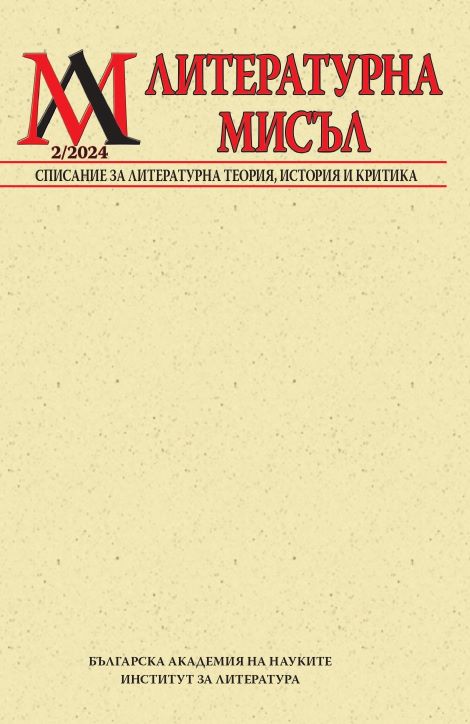Ботев във филмовите интерпретации на Никола Корабов и Максим Генчев
Botev in the film interpretations of Nikola Korabov and Maxim Guenchev
Author(s): Anna AlexievaSubject(s): History, Language and Literature Studies, Fine Arts / Performing Arts, Cultural history, Visual Arts, Studies of Literature, Political history, Film / Cinema / Cinematography, Sociology of Literature
Published by: Институт за литература - БАН
Keywords: Hristo Botev; movies; reception; Nikola Korabov; Maxim Guenchev; socialism; national-populism
Summary/Abstract: The paper is focused on two movies, dedicated to the life and deeds of the Bulgarian poet and revolutionary Hristo Botev. Chronologically, the first one – “Freedom or Death” (1968), was directed by Nikola Korabov – a film director, considered as a part of so-called classical era of the Bulgarian cinematography. The second one, entitled simply “Botev” (2022), was directed by Maxim Guenchev – a contemporary movie director, known with his history-based works. In different time contexts, both movies were met with considerable criticism by the audience and cinema professionals. The paper pays particular attention to the reasons why these films provoked so many pronounced negative reactions. The first movie was not accepted positively because of the political circumstances took place in 1968. Prague Spring affected the whole socialist block. Thus, the movie by Nikola Korabov was seen as deviating from the politically correct line of the Bulgarian socialism, so its screening was stopped by the ideological censorship. The interpretation of the main character and the way the history events were shown was regarded as diverting from the socialist canon. Consequently, the movie was prohibited for public display. “Botev” movie’s reception was not particularly warm as well. The audience was influenced by the director’s pro-Russian point towards the Russian aggression in Ukraine. The same attitude was shared by the main movie character from the screen. It should be taken into account that nowadays the national-populism is in constant raise, and the dictionary of the social dialogue, dedicated to the problems of the national identity, is radicalized respectively. Concerning the artistic language of the first movie, it is defined as a style mixture with no coherent intention, as involving unnecessary Biblical reminiscences, overexaggerated aestheticization with no plot motivation. Summarizingly, the movie was seen as a display of mannerism, unfitting the idea of the national hero’s concept in its socialist version. The movie “Botev” by Maxim Guenchev leaves an impression for amateur, informal event, targeted for close friends and the families of the cast. In conclusion, the image of Hristo Botev was not properly screened either in the socialist period or in the 21 century and more than 30 years after its collapse.
Journal: Литературна мисъл
- Issue Year: 67/2024
- Issue No: 2
- Page Range: 43-62
- Page Count: 19
- Language: Bulgarian

